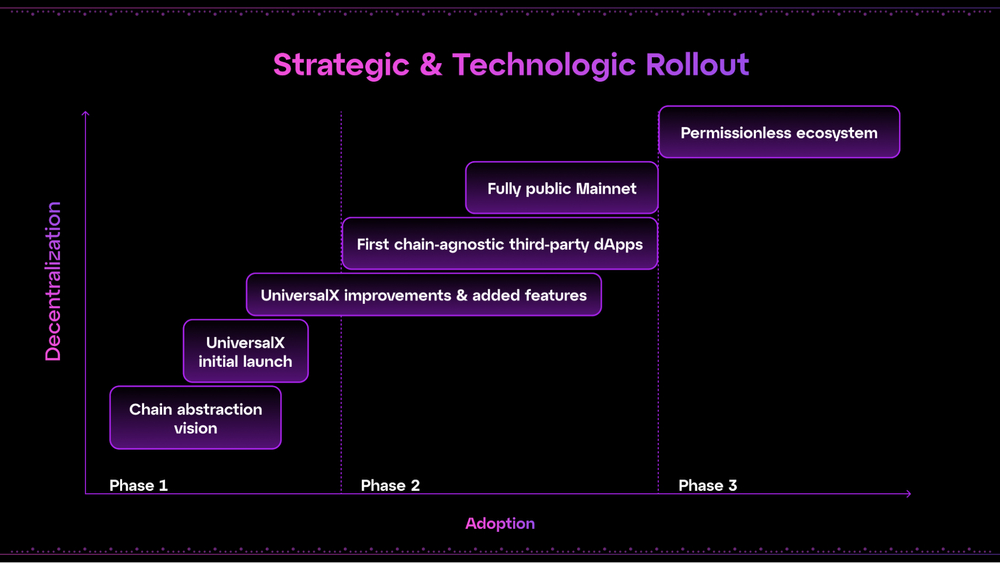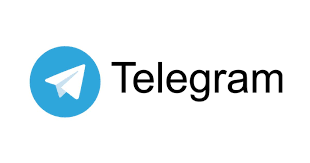 CaryptosHeadlines Media Has Launched Its Native Token CHT.
Airdrop Is Live For Everyone, Claim Instant 5000 CHT Tokens Worth Of $50 USDT.
Join the Airdrop at the official website,
CryptosHeadlinesToken.com
CaryptosHeadlines Media Has Launched Its Native Token CHT.
Airdrop Is Live For Everyone, Claim Instant 5000 CHT Tokens Worth Of $50 USDT.
Join the Airdrop at the official website,
CryptosHeadlinesToken.com
The cryptocurrency space continues to grapple with fragmentation, as users and liquidity are often throughout numerous blockchains with incompatible protocols and standards.
The disjointed environment poses significant challenges for both users and developers, especially when it comes to asset exchanges, cross-platform interactions, and liquidity utilization.
Addressing this persistent issue is Particle Network, a project designed to introduce a Chain Abstraction layer that simplifies blockchain interactions. So what’s special about Particle Network? Let’s explore through this article.
| Key Takeaways:
– Particle Network is a Layer 1 blockchain that simplifies multi-chain interactions by using Account Abstraction. |


What is Particle Network?
Particle Network is a modular Layer 1 blockchain that leverages Account Abstraction to streamline user interaction across multiple blockchains. By removing the need for separate wallets, manual gas payments, and liquidity concerns on each chain, the platform enhances accessibility for both users and developers.
The project is designed to offer infrastructure, toolkits, and services that power Web3 wallet solutions under a Wallet-as-a-Service (WaaS) model. Its core innovation lies in combining Social Login with Account Abstraction to deliver a flexible, user-friendly Web3 wallet experience.
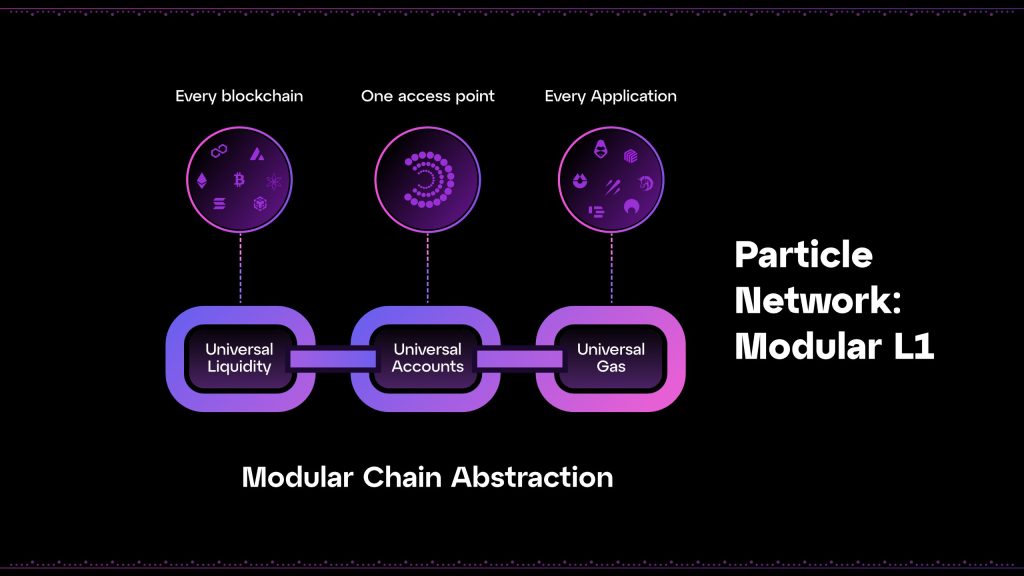

By offering software development kits (SDKs) tailored for wallets, NFTs, node services, and especially Account Abstraction, Particle Network allows developers to concentrate on building core features while ensuring a seamless user experience.
As one of the few platforms actively supporting Account Abstraction at the infrastructure level, Particle Network plays a key role in driving mainstream adoption of crypto technologies.
Particle Network Ecosystem
Particle Network first gained traction by allowing users to create crypto wallets linked to their Web2 social accounts, enabling seamless integration with dApps. Since then, the company has evolved into the largest account abstraction (AA) provider in the Web3 ecosystem.
Currently supporting over 70 blockchains, Particle Network has processed approximately 20 million cumulative User Operations (UserOps) and safeguards more than $2 billion in assets. The platform has seen over 30 million wallet activations and facilitated integration with more than 7,000 decentralized applications.
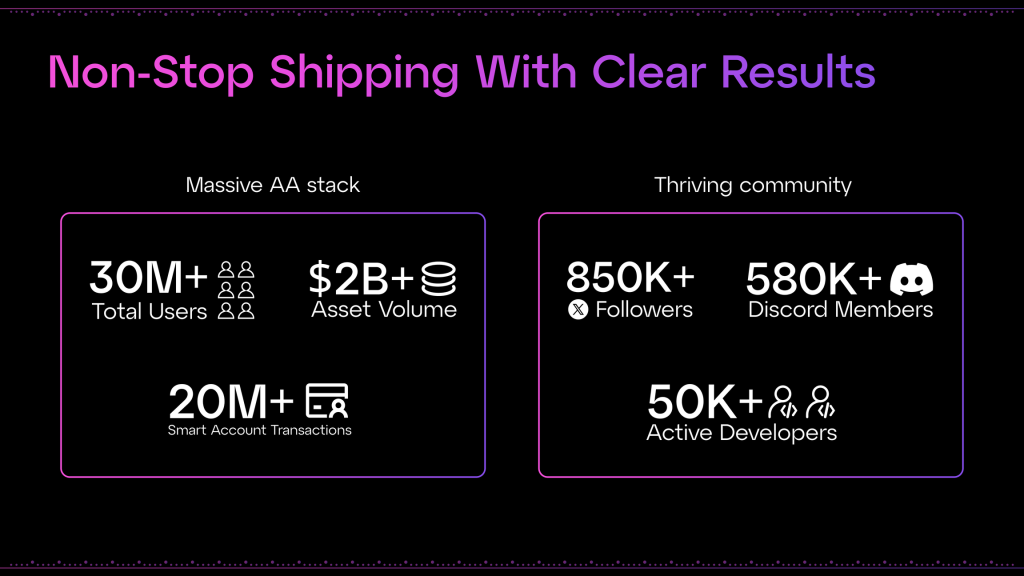

Building on this momentum, Particle Network is now launching Universal Accounts — a major step toward achieving chain abstraction. This innovation aims to simplify the user experience across multiple blockchain environments, marking a significant advancement in Web3 usability.
As part of this initiative, Particle has introduced UniversalX, the first chain-agnostic mainnet application built on Universal Accounts technology, underscoring its commitment to pushing the boundaries of blockchain interoperability.
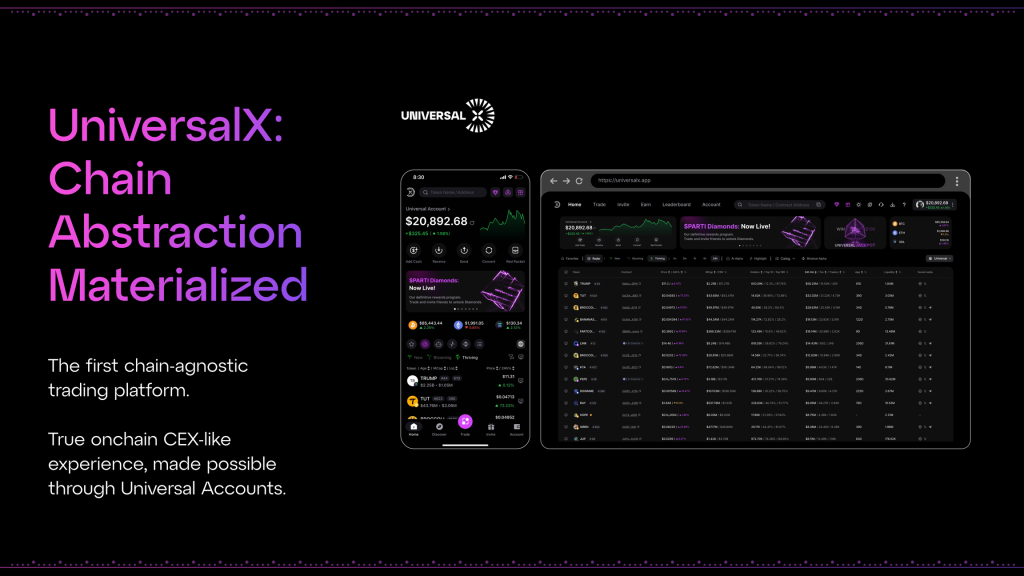

Particle Network Products
Particle Wallet-as-a-Service (WaaS)
Particle Network offers a Wallet-as-a-Service (WaaS) toolkit designed around the ERC-4337 standard, providing full support for Account Abstraction (AA) from setup to real-time use. The service enables developers to seamlessly integrate with AA functionality while remaining tightly linked to Particle’s wallet infrastructure.
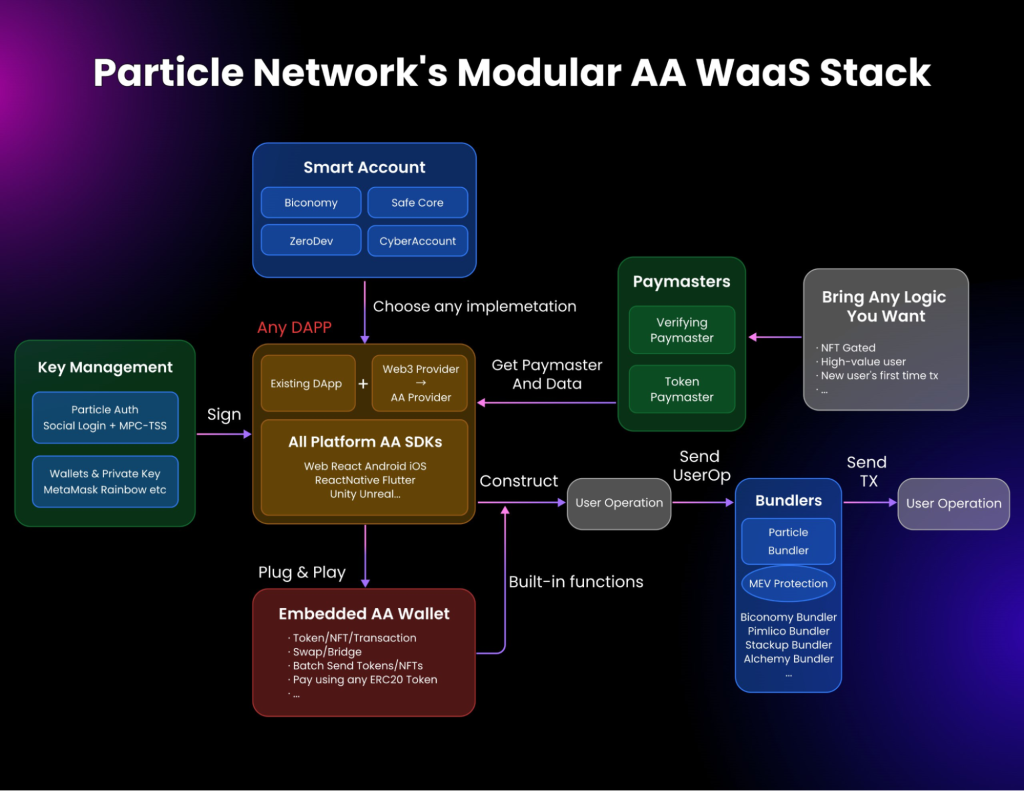

Particle Auth
Particle Auth serves as the authentication backbone of the WaaS ecosystem. It enables wallet creation and access through traditional Web2 login credentials. As a comprehensive SDK, it supports integration across seven platforms and six programming languages, making it simple to embed WaaS into any Web3 application.
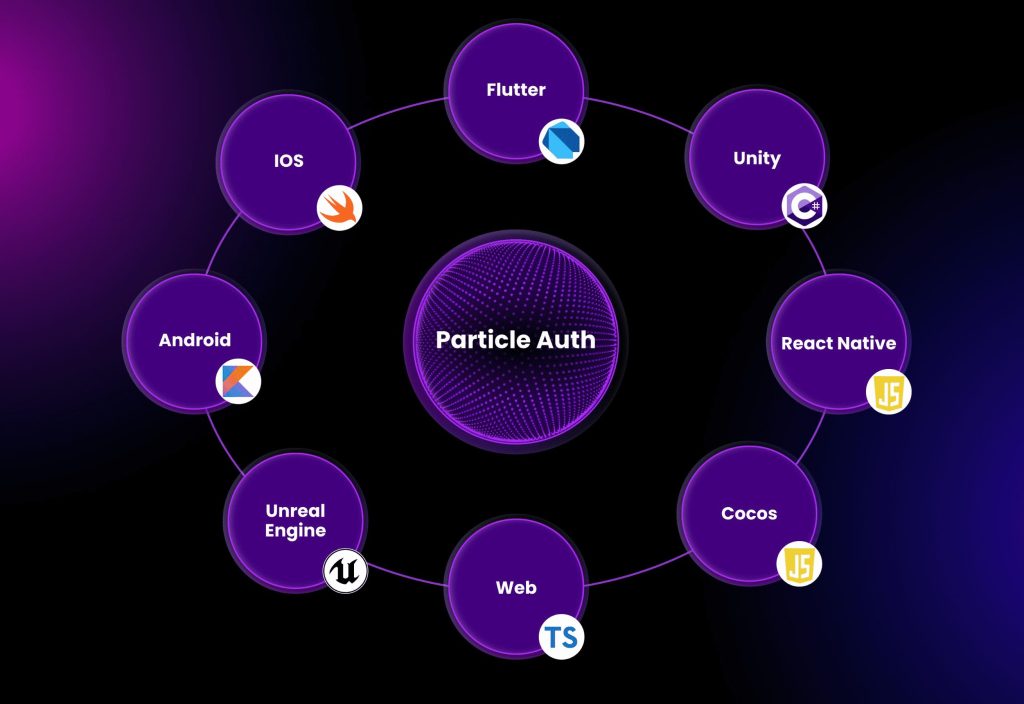

Particle Connect
Particle Connect provides a seamless Single Sign-On (SSO) experience for Web3 platforms. By supporting both Web2 (via Particle Auth) and Web3 (via Particle WaaS) logins, it helps bridge the gap between traditional and decentralized user bases, enhancing the accessibility and ease of adoption for dApps.
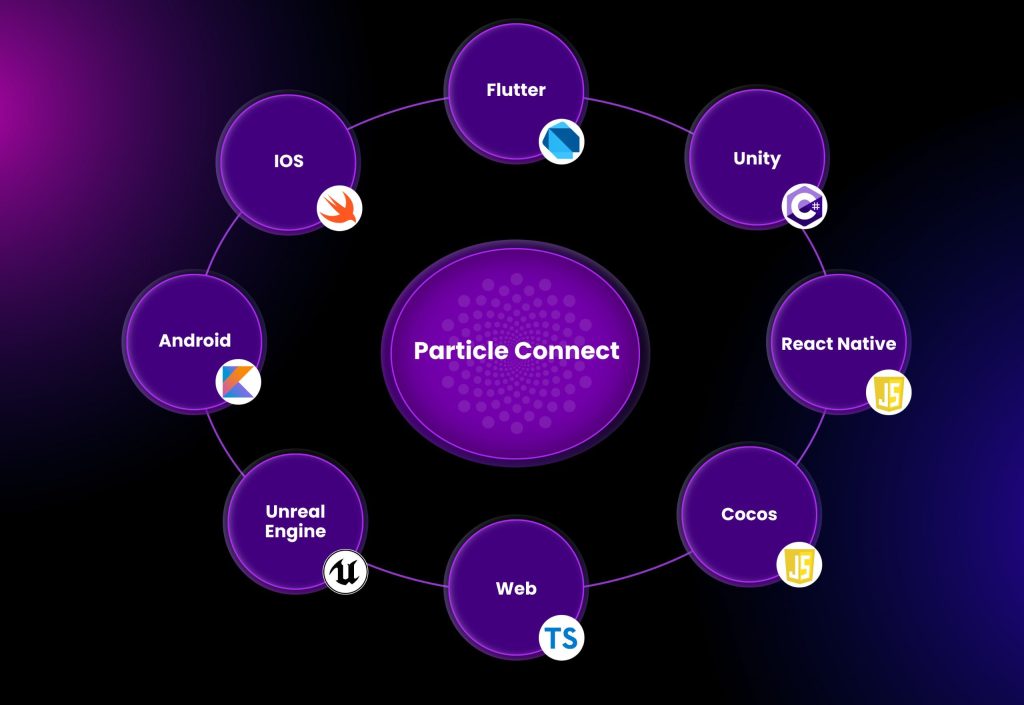

BTC Connect
BTC Connect brings Account Abstraction capabilities to the Bitcoin ecosystem for the first time. It enables smart account usage on Bitcoin-compatible EVM chains such as Merlin, BEVM, and bSquared through native Bitcoin wallets like UniSat and Xverse, expanding the functionality of Bitcoin in the Web3 space.
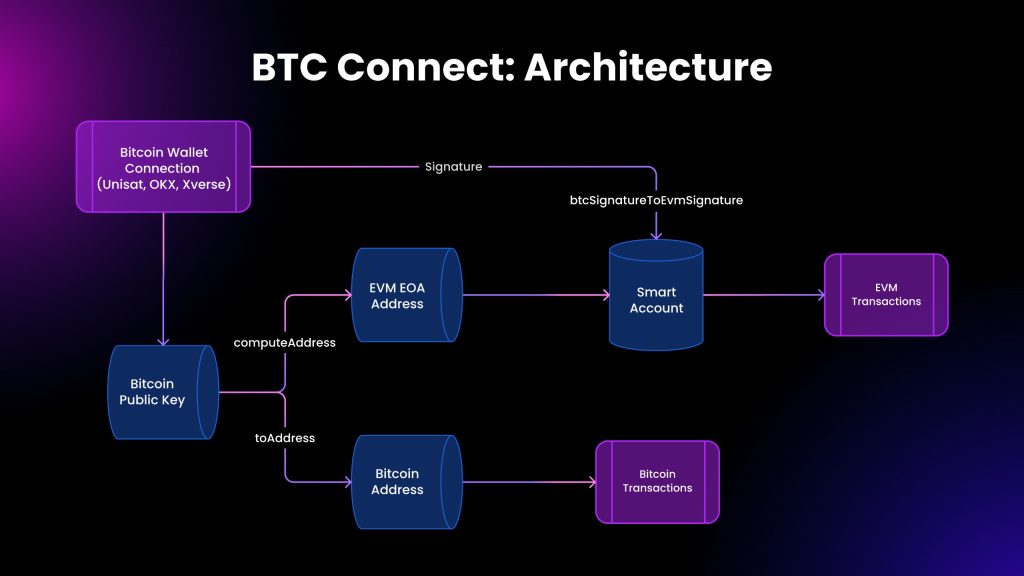

Read more: Walrus Protocol Review: Scalable, Secure, and Cost-Efficient Solution For Blockchain Storage
Particle Network Features
Universal Accounts
At the core of Particle Network’s ecosystem is the Universal Account, a smart account architecture designed to consolidate token balances from multiple chains into a single, accessible interface.
These Universal Accounts are implemented as specialized smart contracts deployed across multiple chains. They can be controlled through a user’s existing wallet, whether it’s a traditional Web3 wallet like MetaMask, UniSat, or Keplr, or through social login methods offered by Particle Network’s Modular Smart Wallet-as-a-Service.
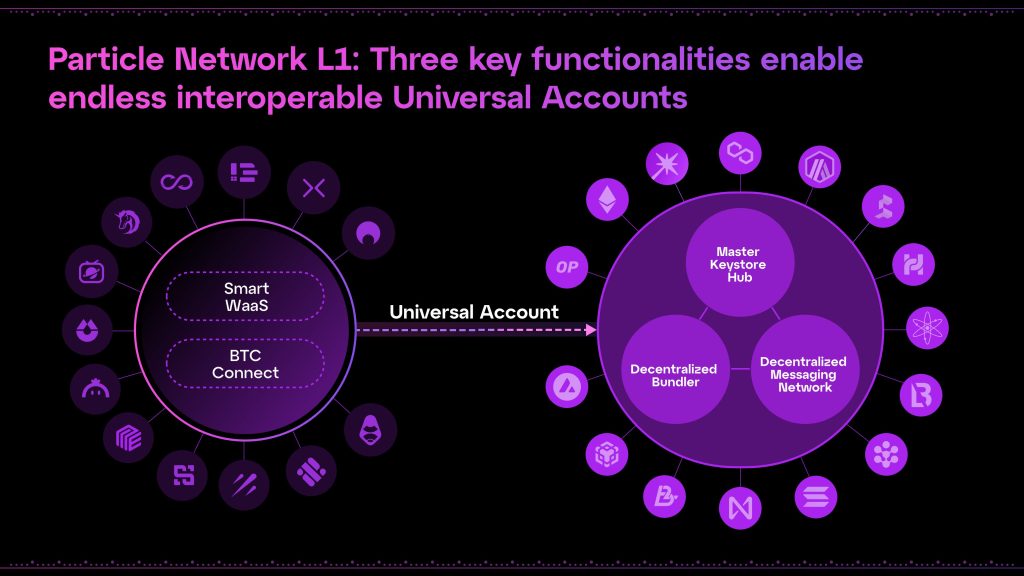

Universal Liquidity
Supporting the Universal Account system is Particle Network’s Universal Liquidity layer, which underpins real-time token balance aggregation. The mechanism enables the execution of atomic cross-chain transactions, orchestrated by Bundler nodes that manage UserOperations across various blockchains.
Liquidity Providers, also known as fillers, facilitate these transactions by moving stablecoins like USDC and USDT through token pools between chains, ensuring fast and reliable asset transfers.
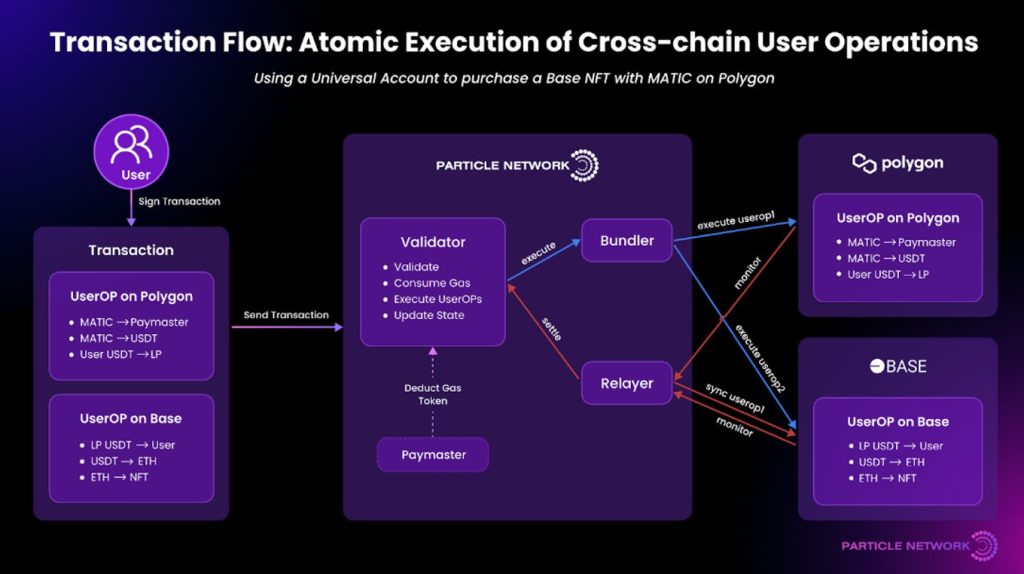

Universal Gas
To address the common challenge of fragmented gas token balances across networks, Particle Network introduces Universal Gas. The feature allows users to pay transaction fees in any token on any chain, eliminating the need to manage multiple gas tokens.
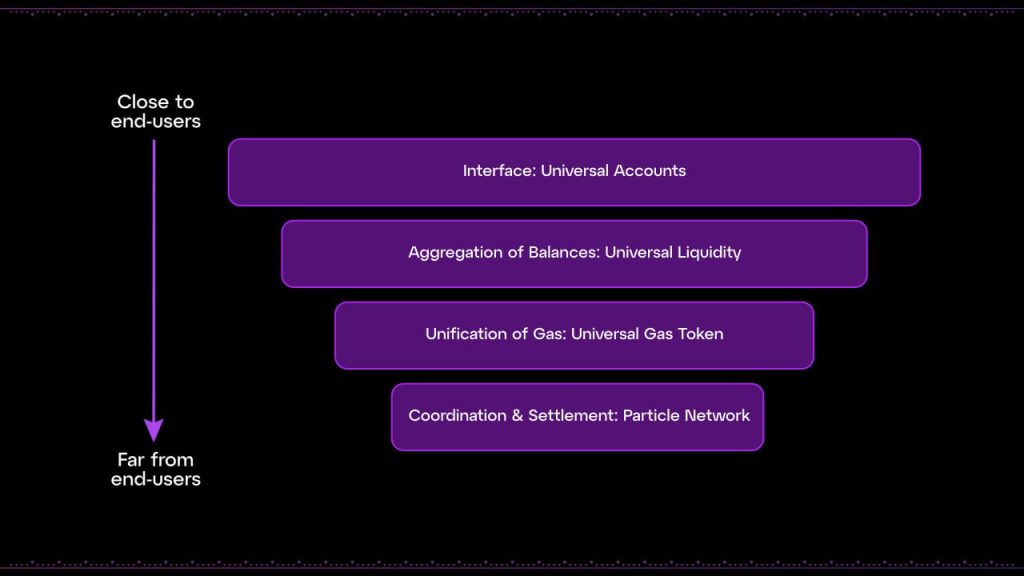

Read more: Superchain: A Scalable Network of Layer 2 Blockchains with Seamless Interoperability
PARTI Token
PARTI token is the foundation of the Particle Chain and plays a central role in its ecosystem’s economy. It is designed to enhance user interaction by powering Universal Gas and enabling efficient settlements on the Particle Chain. As an exchange mechanism, PARTI supports Universal Liquidity within the network.
Key Metrics
- Token Name: Particle Network
- Ticker: PARTI
- Blockchain: BNB Chain
- Token Standard: BEP-20
- Total Supply: 1,000,000,000 PARTI
Tokenomics
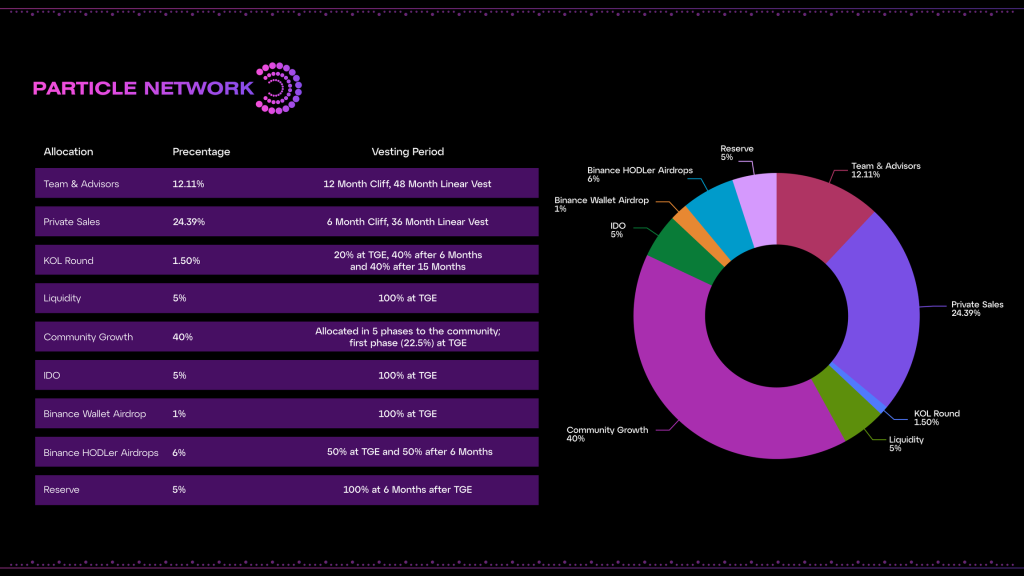

PARTI Utility
PARTI serves three primary purposes within the Particle Network:
- Staking & Governance: PARTI holders have the ability to stake tokens and vote on proposals that influence the ecosystem’s development and decision-making processes.
- Universal Gas Token: Used as the native gas token across the network, PARTI also functions as the base gas token for Universal Accounts, enabling smooth transaction operations.
- Universal Liquidity Token: PARTI operates as an intermediary settlement token for liquidity providers (LPs), facilitating asset exchanges and maintaining liquidity across the network.

Team
Founded in 2022 by co-founders Pengyu Wang and Tao Pan, Particle Network has since grown into a team of over 30 professionals. The majority of its workforce is composed of individuals with strong backgrounds in software development and technical roles.
Investors
To date, Particle Network has secured over $25 million in funding across several investment rounds. The funding began with a $1.5 million pre-seed round in May 2022, followed by a $7 million seed round in March 2023. The company later raised $15 million in a Series A round in June 2024, led by Spartan Group and Gumi Cryptos Capital.
In August 2024, YZi Labs—affiliated with Binance Labs—publicly confirmed its investment in Particle Network to aid in its mainnet launch and broader project growth. However, the financial details of this particular backing have not been made public.









